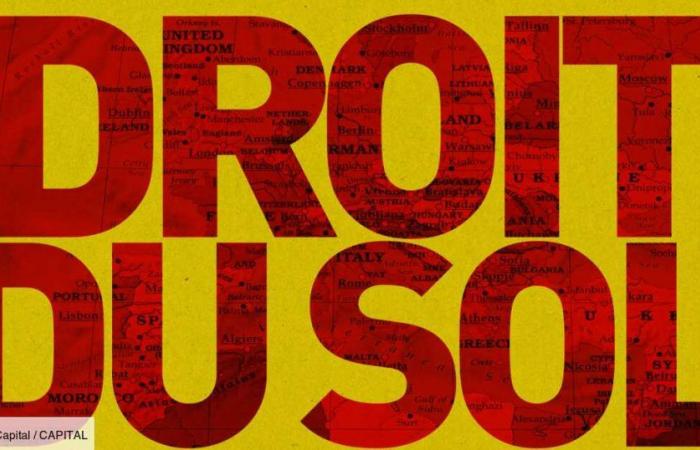© Illustration Capital
– Gérald Darmanin already mentioned in mid-February his intention to abolish the right of the soil in Mayotte.
During the debate against Gabriel Attal on Tuesday June 25, Jordan Bardella reiterated his intention to abolish the right of the soil in the event of a majority of the RN in the National Assembly at the end of the second round of the legislative elections, so that the acquisition of French citizenship “can no longer be automatic“To support his point, he stated that the right of the soil has already been “deleted in Mayotte“, French department. However, if Gérald Darmanin had indeed announced in mid-February his intention to abolish the right of the soil in Mayotte – the archipelago was then blocked by citizens’ groups protesting against illegal immigration and delinquency –, the draft constitutional revision has not yet been adopted. It was to be presented to the Council of Ministers in July for examination at the start of the school year, and therefore remains suspended on the result of the early legislative elections.
In France, some become French by attribution – when nationality is obtained automatically, whether at birth or at majority –, others by acquisition, that is to say after an express request to a public authority, under several conditions (duration of residence on French soil, proof of assimilation into French society, etc.).
The rest under this advertisement
The rest under this advertisement
A land right under conditions
We generally contrast the right of soil with the right of blood, obtained when at least one of the child’s parents is French at the time of his birth. The child then “inherits” the nationality of his parents, regardless of where he was born. The right of soil, for its part, designates the obtaining of French nationality, upon reaching the age of majority, by a child born on French territory, provided that he resides in France at the age of 18 and that he has resided in the territory for at least five years since the age of 11. In the next generation, the child born in France to a parent himself born in France is automatically French. This is what we call the double right of the ground. Thus, soil law gradually integrates the children and grandchildren of foreigners into the nationality.
Legislative 2024: what are these “sensitive jobs” that the RN wants to ban dual nationals?
It is also possible to obtain French nationality before reaching the age of majority at the request of parents (between 13 and 16 years old) or personal request (from 16 to 18 years old), while respecting conditions of length of residence in France. This is the advance declaration.
The rest under this advertisement
Historical traditions
If the law of blood is enshrined in all countries of the world, filiation being an absolute principle, that of soil only concerns around sixty countries and is available in different ways. On the American continent, it is applied automatically and unconditionally, due to the need, in the 19th century, for these emerging states to attract immigrants. We observe in fact that a country of emigration generally advocates the law of blood to maintain ties of allegiance with its expatriates, while a country of immigration tends rather to favor the law of soil to facilitate and encourage the integration of newcomers and their descendants. The most emblematic example is that of the United States, a land of immigration, where anyone born on American soil automatically obtains citizenship, regardless of the immigration status of their parents. Former US President Donald Trump attempted to reduce this automaticity but found himself facing significant constitutional obstacles.
The rest under this advertisement
The rest under this advertisement
In Europe, land law exists in several countries (Belgium, Portugal, Ireland, etc.), but it is systematically subject to conditions (residence in the country, declaration to claim nationality, if the child is stateless, etc.). “The dynamic in Europe is that countries which traditionally only knew blood law have made room for land law. This was for example the case of Austria which, since the 2000s, has opened up to a small part to land law. This was especially the case of Germany, or even Greece. Overall, we are in a dynamic of opening up of the right of the soil in Europe, even if many States maintain a system that is exclusively based on the right of blood“, explains for Radio France Jules Lepoutre, author of Nationality and sovereignty published by Dalloz.






